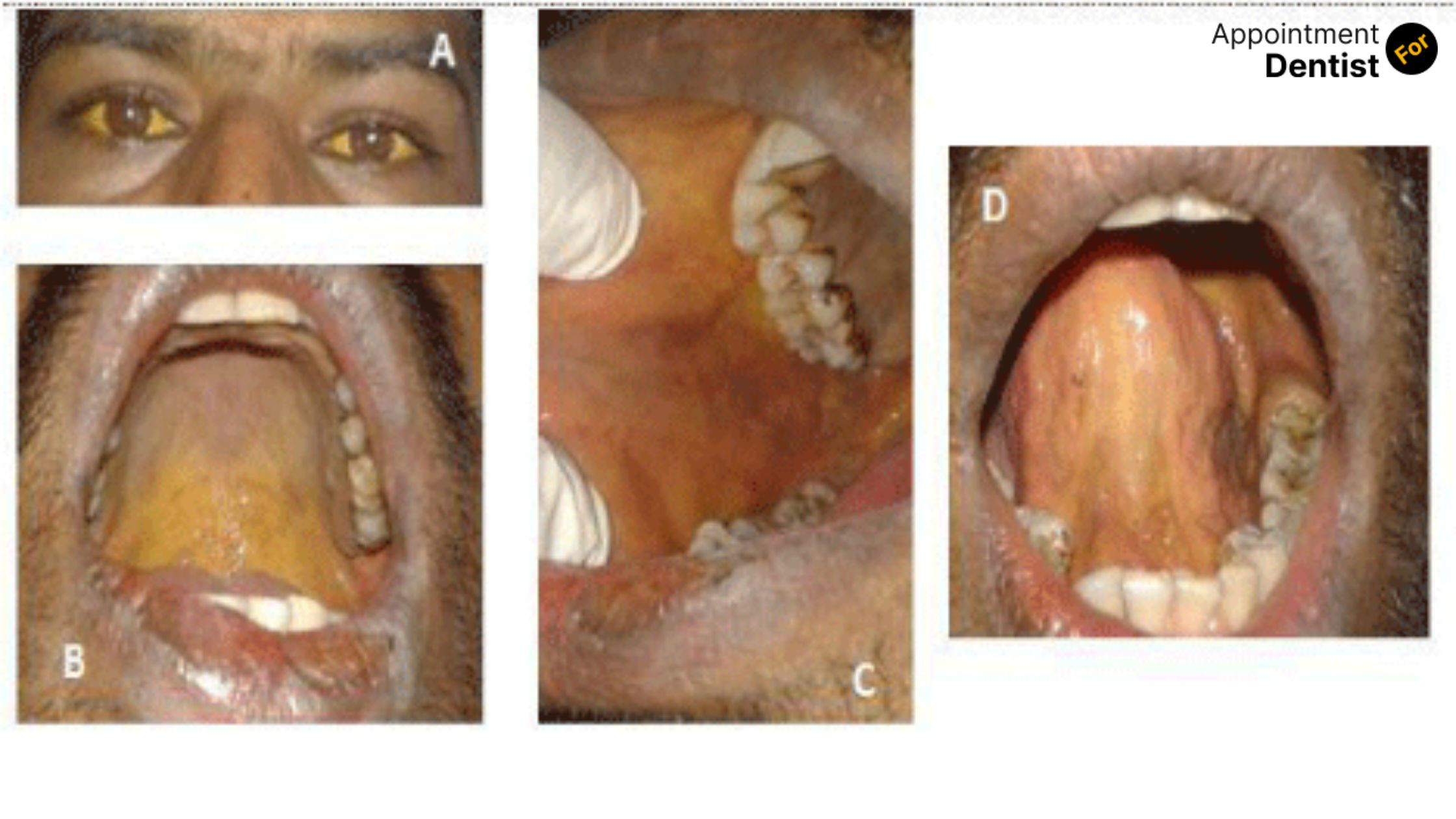Understanding and Managing Oral Manifestations of Liver Disease
Posted on August 10, 2024 by Admin

Understanding and Managing Oral Manifestations of Liver Disease
The liver diseases have considerable impact on oral health and have led to many oral manifestations. Patients who have chronic liver diseases always suffer from bad oral health, and several symptoms and signs relate to the state of the patient's liver. As such, understanding the link between liver disease and oral health is very important for effective management and prevention of complications.
Some common oral manifestations seen in the patients suffering from liver disease are as follows:
- Bleeding disorders: Coagulation abnormalities within the oral cavity are more likely due to liver dysfunction.
- Jaundice: Yellowing of the skin and mucosae occurs as a result of the build-up of bilirubin, which is a by-product from breaking down red blood cells in the body.
- Foetor hepaticus: Characteristic musty odor of the breath is due to the accumulation of dimethyl sulfide, which is a by-product of liver disease.
- Cheilitis: Inflammation and fissuring of the lips, which is commonly found to occur in cases of liver cirrhosis.
- Smooth tongue: A smooth, glistening appearance of the tongue due to atrophy of papillae.
- Sialadenosis: Inflammatory enlargement of the salivary glands, frequently found in patients with liver cirrhosis.
The pathogenesis of the oral manifestations may be causal, coincidental, resulting from iatrogenic measures, or related to other commonly occurring factors among patients with liver disease.

Pathophysiology of Oral Manifestations in Liver Disease
The relation between liver disease and oral health is two-way. Indeed, poor oral hygiene is a common feature in patients with chronic liver disease. Thus, the risk for developing periodontal infection as well as other oral infections rises. Afterwards, these infections might be involved in additional hepatic injury by systemic release of inflammatory mediators and bacterial toxins at the time of bacteremia.
Recently, a new aspect of the influence of liver disease on oral health has been found. Liver disease has been proved to interfere with the work of salivary glands, leading to a decrease in saliva formation within them. Reduced flow of saliva in the mouth leads to a higher incidence of dental caries and infections in the oral cavity. Xerostomia may result in discomfort while speaking or dysphagia.
Management of Oral Manifestations in Liver Disease
Management of oral manifestations in people with liver disease needs a multidisciplinary approach including hepatologists, dentists, and other health professionals. In particular, regular dental check-ups and professional cleaning help in preventing complications and maintaining good oral hygiene.
Here are some of the advice that has been laid down for the patients suffering from liver diseases:
- Good oral hygiene: The brushing of teeth, using a soft-bristled toothbrush, should be done twice a day with non-abrasive toothpaste.
- Floss regularly: This is to help get rid of plaque and residuals of food between the teeth; hence, the chance of getting gum disease is decreased.
- Saliva substitutes: If there is xerostomia, saliva replacement treatment reduces the holding of signs and symptoms and prevents possible infections of the mouth.
- Avoidance of irritants: One should avoid tobacco, alcohol, and spicy or acidic foods that are going to further irritate the oral cavity.
In patients with more serious oral manifestations, such as profuse bleeding or infections, dental treatment may have to be deferred until the underlying hepatic disease is better controlled and stabilized. Therefore, close liaison between the hepatologist and dentist is essential for the safe management of such patients.
Conclusion
Oral manifestations of liver disease are very common, often crippling, and could bear significantly on the quality of life for the patient. With better insights into this relationship between liver disease and oral health, health physicians and dentists can team up for good measure in putting up some useful preventive and management strategies. The best collaborations by the hepatologists and dentists require good dental care and good oral hygiene practices to keep optimal oral health in a patient with liver disease.
Faqs
-
1. What is the common oral manifestation of liver disease?
Bleeding disorders, jaundice, foetor hepaticus, cheilitis, smooth tongue, and sialadenosis are common oral manifestations.
-
2. What effect does liver disease have on salivary flow?
Chronic liver disease may cause a decreased salivary flow, accompanied by xerostomia, and increases the risk of oral infections and dental caries.
-
3. Can oral infections aggravate liver disease?
Yes. Oral infections can cause further liver injury due to the systemic dissemination of inflammatory mediators and bacterial toxins from the oral cavity into the general circulation.
-
4. What is the role of dental professionals in managing patients with liver disease?
Dental professionals should monitor oral hygiene, prevent complications, and provide consultation to hepatologists for the safe treatment of such patients.
-
5. How can patients with liver disease maintain good oral health?
Patients should practice good oral hygiene measures, use saliva substitutes in cases of xerostomia, avoid irritants, and regularly attend dental checkup and cleaning.
Recent Post
- The Importance of Oral Health Education for Children
- How to Choose the Right Orthodontic Treatment for Adults
- The Link Between Oral Health and Stroke Risk
- How to Address and Prevent Gum Recession
- Innovations in Dental Anesthesia: Pain-Free Procedures
- The Role of Saliva in Oral Health: Functions and Disorders
- Exploring Holistic Dentistry: What You Need to Know
- How Oral Health Affects Your Immune System
- The Benefits of Using Dental Probiotics
- Oral Health and Pregnancy: Myths and Facts